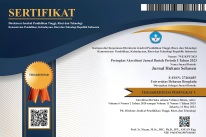A Juridical Analysis Of The Validity And Legal Protection Of Smart Contracts As Electronic Contracts In Indonesia
Abstract
The development of blockchain technology has given rise to the innovation of smart contracts, digital contracts that execute automatically based on programming code without third-party intervention. Smart contracts offer efficiency, transparency, and security in electronic transactions, but their implementation in Indonesia requires in-depth legal review. This study uses a normative juridical method with a statutory and conceptual approach to analyze the validity of smart contracts under the Civil Code (KUHPerdata) and the Electronic Information and Transactions Law (UU ITE), as well as the legal protection provided to the parties using them. The results indicate that smart contracts can be recognized as valid electronic contracts if they meet the requirements for a valid agreement as stipulated in Article 1320 of the Civil Code, as well as the criteria for electronic contracts in the ITE Law and Government Regulation No. 71 of 2019. Legal protection for parties in smart contracts is dual: normative protection through statutory regulations and technical protection through blockchain characteristics, such as immutability, transparency, and cryptography. However, specific regulations regarding smart contracts in Indonesia are still limited, necessitating further regulation regarding identity verification, cross-border jurisdiction, the recognition of blockchain-based evidence in court, and dispute resolution mechanisms appropriate to the nature of the technology.
Downloads
Copyright (c) 2025 Iis Mardeli

This work is licensed under a Creative Commons Attribution-ShareAlike 4.0 International License.






